
- October 15, 2023
- Academic Advice

Thesis vs. Non-Thesis Master’s Programs: Which is Right for You?
UOTP Marketing

Continuing your educational journey within your chosen field is an experience that fosters personal and professional growth. The next milestone in your academic path often involves pursuing a Master’s degree , with options ranging from thesis-based programs to non-thesis alternatives. Deciding between these two paths is significant as it shapes your academic and career paths.
But how can you decide which is right for you before getting decision fatigue?
Let’s explore the difference between thesis vs. non-thesis Master’s programs, their unique characteristics, and reasons for choosing one or the other.
Do You Have to Write a Thesis for Your Master’s Program?
Whether you have to write a thesis for your Master’s program depends on the specific requirements of the program you’re enrolled in. It’s important to note that while not all Master’s programs require writing a thesis, a significant number of them do.
What is a Thesis vs. Non-Thesis Master’s Program?
A thesis Master’s program involves completing a large research project spanning over several semesters. Students are expected to conduct original research on a specific topic under a faculty advisor’s guidance, culminating in a thesis likely to be published. Completing and defending the thesis is a crucial part of the degree requirement.
A non-thesis Master’s program doesn’t involve a specific research focus but rather a more coursework and practical experience, allowing students to gain specific skills and knowledge applicable to their field of study. After completing their program’s core course requirements, students can choose any of the electives to meet their degree requirements. Depending on the institution, you may be required to do a Master’s Degree Capstone project, including reviewing previous courses, a comprehensive exam, or a summary project.
Why Choose a Thesis Master’s Program?

Thesis Master’s programs offer several advantages, be that contributing to new findings in your field, close collaboration with professors and researchers, and standing out to potential employers with your abilities to work independently and analyze complex issues. However, the primary advantages are:
Research Experience
Thesis programs allow you to conduct extensive research on a specific topic that piques your interest. This way, you’ll gain expertise and a comprehensive understanding of the subject matter.
Academic Growth
Writing a thesis helps sharpen your critical thinking, analytical, and writing skills. It also challenges you to think independently, analyze a large amount of data, and draw meaningful conclusions. Furthermore, it prepares you for doctoral studies, familiarizing you with the rigor of independent research and equips you with the necessary skills to succeed.
Why Choose a Non-Thesis Master’s Program?
Non-thesis master’s programs also come with numerous advantages for students, including flexibility in scheduling, a range of career opportunities, shorter competition time, etc. Here are the main advantages:
Non-thesis programs prioritize coursework, fostering the development of practical skills and their real-world application. This approach enables you to actively engage in hands-on learning experiences highly sought after in today’s job market. Critical thinking, communication, problem-solving, and leadership abilities are some of those skills.
Suitability for Professionals
Another advantage to pursuing a non-thesis Master’s program is that it doesn’t take as much time as the thesis Master’s programs. That way you can enter the workforce faster. It’s also well-suited for professionals already established in their field who are seeking to further their education and advance in their careers.
The Academic and Career Outcomes of Thesis vs. Non-Thesis Master’s Programs

The academic outcomes for the thesis Master’s program graduates involve preparation for Ph.D. programs , opening doors to advanced research and specialized roles in research institutions. This provides solid research skills and helps them publish their work. Common career paths for graduates include research positions in academia, government, or private sectors. Some also pursue teaching careers in colleges and universities. Degree programs that usually require a thesis include sciences, social sciences, engineering, and humanities (history, philosophy, and language studies).
Non-thesis Master’s program graduates typically achieve academic outcomes focused on mastering practical, directly applicable skills within their field. While these programs are more career-oriented, graduates can still pursue a Ph.D. They can benefit from diverse career options in different settings and find employment in managerial, administrative, or specialized roles in their field. Degree programs that don’t usually require a thesis are business, education, healthcare administration, IT management, etc.
Thesis vs. Non-Thesis Master’s Programs, That is the Question
With their abundance of advantages, choosing between the two can be pretty tricky. So, let’s compare thesis vs. non-thesis Master’s programs and help you make an informed decision.
Personal and Career Goals
A thesis Master’s program is ideal if you’re interested in furthering in academia and want to pursue a Ph.D ., as these programs can provide the necessary tools to enhance your credentials for research-based careers. Meanwhile, a non-thesis Master’s program will suit you better if you’re seeking to gain practical skills to integrate into the industry immediately, as they can include practical projects or internships according to industry demands.
Time and Financial Considerations
Thesis Master’s programs can extend the duration of your studies, as researching, writing, and defending the thesis can take several semesters to complete and can cause financial strain due to additional costs like lab fees and materials. In contrast, non-thesis ones can help you enter the job market promptly as they are shorter, allowing you to save time and money.
Interested in pursuing a degree?
Fill out the form and get all admission information you need regarding your chosen program.
This will only take a moment.
Message Received!
Thank you for reaching out to us. we will review your message and get right back to you within 24 hours. if there is an urgent matter and you need to speak to someone immediately you can call at the following phone number:.
By clicking the Send me more information button above, I represent that I am 18+ years of age, that I have read and agreed to the Terms & Conditions and Privacy Policy , and agree to receive email marketing and phone calls from UOTP. I understand that my consent is not required to apply for online degree enrollment. To speak with a representative without providing consent, please call +1 (202) 274-2300
- We value your privacy.
Field of Study and Program Requirements
When deciding between a thesis and a non-thesis Master’s program, a crucial element to take into account is the field of study and the program’s specific requirements. A thesis Master’s program is better suited for those pursuing research-oriented fields, while a non-thesis program is a more fitting choice for individuals with a strong focus on their career. Furthermore, program requirements for thesis programs require substantial research to culminate in a thesis, whereas non-thesis ones require capstone projects, internships, or comprehensive exams.
Switching from a Non-Thesis to a Thesis Master’s Program, or Vice Versa
Switching from a non-thesis to a thesis Master’s program, or vice versa, is possible in many institutions, although the process and requirements may vary. Switching from a non-thesis to a thesis program generally requires getting approval from the academic advisor or department, completing additional research methodology classes, finding a thesis advisor, and applying to the thesis program.
Switching from a thesis to a non-thesis Master’s program requires having at least a 3.0 GPA, getting approval from the academic advisor, transferring credits of research methodology classes, and formally applying to the thesis program.
Choosing between a thesis and a non-thesis Master’s program ultimately depends on your career goals, research interests, and personal preferences. Thesis programs provide a robust foundation for research-oriented careers and advanced studies, while non-thesis programs offer practical skills tailored for immediate industry integration. Regardless of your choice, both paths offer unique advantages, ensuring you gain the knowledge and skills needed to thrive in your chosen field.
Frequently Asked Questions (FAQs):
What is the difference between a thesis vs. non-thesis master’s program.
The key difference between a thesis and a non-thesis Master’s program is that thesis Master’s programs require original research and completion of a thesis, whereas non-thesis ones focus on coursework and practical experiences.
Do I have to write a thesis for a Master’s program?
If you’re pursuing a research-oriented Master’s degree in sciences, engineering, social sciences, humanities, etc., you’ll probably have to write a thesis. Whereas, if you’re pursuing a Master’s degree in education, business healthcare administration, or IT management, you’re more likely not to have to complete a thesis.
Is a thesis required for all Master’s degree programs?
Although a thesis isn’t required for all master’s degree programs, many programs require one.
What should I consider when deciding between a thesis and non-thesis program?
There are several factors to consider when choosing between a thesis and a non-thesis Master’s program, including your career goals, interest in research, duration of studies, personal strengths and preferences, cost, and program requirements.
Are there any financial and duration differences between thesis and non-thesis Master’s programs?
There can be financial and duration differences between thesis and non-thesis Master’s programs. Thesis programs can be more expensive as you’ll have to spend additional resources on materials, lab fees, and data collection. In contrast, the main cost for non-thesis programs is tuition fees, which can be slightly lower. Furthermore, thesis programs require additional time to conduct research, write, and defend the thesis. In contrast, non-thesis programs allow students to earn the degree in a shorter period.
Why should I choose a thesis Master’s program?
You should choose a thesis Master’s program if you’re interested in a research-heavy discipline and want to showcase your knowledge and expertise in an evidence-based, thorough thesis.
Why should I choose a non-thesis Master’s program?
You should choose a non-thesis Master’s program if you want to enter the workforce earlier, don’t want to spend several semesters collecting data, and want to focus more on application than research.
Can non-thesis Master’s graduates still pursue doctoral studies later?
Yes, non-thesis Master’s graduates can still get accepted into a doctoral program. However, thesis Master’s graduates can go through the process more efficiently, as admissions panels want to gain insight into your academic interests and ability to engage in nuanced thought.
Share it with your friends!
Explore more.

Accounting vs. Finance Degree: Which Major to Choose?

12 Important Bookkeeping Skills You Need for a Successful Career
Recent resources.

What Can You Do With a Hospitality Management Degree? Best Hospitality Careers

What Can You Do with an International Studies Degree [2024]

9 Benefits of Learning a Second Language

Associate’s vs. Bachelor’s: Which One To Choose?
INTERESTED IN LEARNING MORE?
Chat with an Admissions Officer Now!

- Associates Degree
- Bachelors Degrees
- Masters Degrees
- Doctoral Degrees
- Faculty & Staff
- Accreditation
- Student Experience
QUICK LINKS
- Admission Requirements
- Military Students
- Financial Aid
Request More Information
College of Agricultural, Consumer and Environmental Sciences
Food Science & Human Nutrition
- What We Do & Why It Matters
- Alumni and Friends
- Diversity, Equity, Belonging and Inclusion
- Food Challenge
- Career Possibilities
- Financial Support
- Undergraduate Degrees
- Graduate Degrees
- Certificates
- Undergraduate Research
- Study Abroad
- Student Organizations
- Competitions
- Transfer Information
- Undergraduate Scholarships
- Emeritus Faculty
- Adjunct/Affiliate Faculty
- Biochemical and Molecular Nutrition
- Food Materials Science and Engineering
- Food Safety and Security
- Integrated Food Nutrition and Health
- Research and Teaching Facilities
- Research News
- Department News
- FSHN Seminar Calendar
- Newsletters
- Current Open Position Announcements
Food Science M.S. Online (Non-Thesis)
The Department of Food Science and Human Nutrition (FSHN) offers an online non-thesis Master of Science degree. Many of the students in this program are working professionals. The online delivery option makes the program accessible to students in various locations, who may also be balancing important personal and professional commitments.
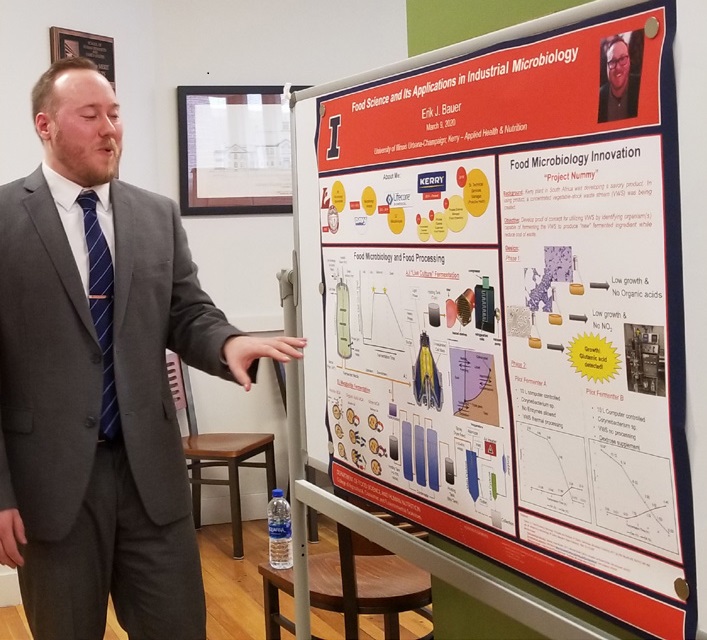
This section allows learners to demonstrate their deep knowledge of the field by providing context to existing texts within their chosen discipline Learners review the main bodies of work, highlighting any issues they find within each. Constructive criticism often centers around shortcomings, blind spots, or outdated hypotheses.
Students use this section to explain how they went about their work. While scientists may point to a specific method used to reach conclusions, historians may reference the use of an emerging framework for understanding history to bring new light to a topic. The point of this section is to demonstrate the thought processes that led to your findings.
This section allows for learners to show what they learned during the research process in a non-biased way. Students should simply state what information they gathered by utilizing a specific framework or methodology and arrange those findings, without interpretation, in an easy-to-read fashion.
After providing readers with all the necessary information, the discussion section exists for candidates to interpret the raw data and demonstrate how their research led to a new understanding or contributed a unique perspective to the field. This section should directly connect to the introduction by reinforcing the hypothesis and showing how you answered the questions posed.
Even though the previous sections give prospective degree seekers a better sense of what to expect if they decide to write a thesis during their master's program, they don't necessarily help learners decide whether to pursue a thesis or non-thesis track. The following section highlights some of the reasons students frequently choose to complete a thesis or bypass the process altogether by providing a pros and cons list.
Why a Thesis Program
- Especially when entering a research-heavy discipline, completing a thesis shows prospective schools and employers that you possess the skills needed for researching and writing long-form reports.
- Students hoping to pursue a Ph.D. stand in better stead with admissions panels if they wrote a thesis during a master's program.
- Individuals hoping to enter a field that values syntax and grammar often better their writing skills by completing a thesis.
- Students who write a thesis can submit the final product to various academic journals, increasing their chances of getting published.
- Theses expand students' understanding of what they're capable of, deepen their ability to carry out an argument, and develop their skills in making connections between ideas.
Why a Non-thesis Program
- Because they don't require a significant written product, non-thesis master's tend to take less time to complete.
- Often mirrors a bachelor's program in terms of structure, allowing learners to complete classes and take exams without a great deal of research or writing.
- Students who excel in project-based assignments can continue building skills in this arena rather than focusing on skills they don't plan to use (e.g. research)
- Provides learners the opportunity to work more closely and more frequently with faculty on real-world projects since they don't spend hundreds of hours researching/writing.
- Allows learners to take more classes and gain hands-on skills to fill the time they would have spent researching and writing a thesis.
How to Choose a Master's Program: FAQs
Within some academic disciplines and professional fields, research and writing plays a key role in work done on a daily basis. Because of this, master's programs in these fields require learners to complete theses to compete against peers and be seen as competent in their work. Other disciplines, conversely, rely on other tools to accomplish work and progress ideas – making theses less important.
Yes. Master's programs focused more on application than research typically don't require a thesis – although they may still give students the option. Examples of common non-thesis master's programs include nursing, business, and education.
Even though non-thesis students won't be writing a 100-page paper, that doesn't mean they avoid completing a significant project. In place of a thesis, most applied master's programs require students to take part in at least one internship or complete a culminating project. These projects typically ask learners to take what they learned throughout coursework and create an expansive final project – examples include case studies, creative works, or portfolios.
While students who followed a non-thesis path routinely receive acceptance to Ph.D. programs, those with theses often find the process easier. Even if a learner pursues a Ph.D. in a discipline that isn't research-heavy, admissions panels still want to get a sense of your academic interests and ability to engage in independent, nuanced thought. Students with theses can provide solid proof of these skills, while those without may struggle to demonstrate preparedness as thoroughly.
The answer to this question depends on many factors, but typically it is okay not to do a thesis if you plan to enter a field that doesn't depend heavily on research or writing, or if you don't plan to complete a Ph.D.
Students wanting to work in academic, research, or writing should always opt for the thesis track. They should also follow this path if they have any doctoral degree aspirations.
Ultimately, the decision of whether or not to complete a thesis rests with the individual student. Figuring out how to proceed on this front requires lots of careful consideration, and learners should ensure they consider various aspects before coming to a final decision. The following section helps students consider how they should and should not come to a conclusion.
Dos and Don'ts of Choosing a Thesis or Non-thesis Program
- Consider the longevity of your decision: will you feel the same in 5-10 years or are you making a decision based on current desires?
- Talk to others who with experience in this area. Ask them questions about their decision-making process and if they regret their choice.
- Research potential thesis topics before starting a program. Going in with a game plan can help you feel more confident and settled about the process than if you're scrambling for a topic while in school.
- Reach out to prospective schools to speak with faculty and/or current students following both tracks. This will provide knowledge specific to the school while also expanding your network if you choose to attend there.
- Research Ph.D. entrance requirements to ascertain if the majority expect learners to possess a thesis when applying. This will give you a sense of whether you may experience issues later on if you do not complete one.
- Decide not to complete a thesis simply because you have never taken on such a task and feel overwhelmed or fearful that you will fail.
- Complete a thesis simply because you think it will look good on your resume. Theses require intense devotion over an extended amount of time; learners who complete them without conviction often find the process miserable.
- Forget to research alternatives to writing a thesis. Just because you don't complete a research paper doesn't mean a non-thesis track lacks rigor or challenging coursework.
- Forget to read examples of theses by previous students. If you feel overwhelmed by the task, reading work other people have done can often make the task at hand feel less scary.
- Let yourself off easy by taking the non-thesis path. If you find you have extra time in the program, talk to your advisor about taking more classes, develop meaningful projects for yourself, or see about presenting at an academic conference.
From the Expert

Sudiksha Joshi, Ph.D. is a learning advocate. Her mission is to empower our youth to think bigger, bolder thoughts and forge a career path that will change the world. She taps into her natural curiosity and ability to identify strengths to help students and those in transition find their path from feeling lost in the traditional ways of achieving success to charting their own path. Her work has been featured in Forbes, Huffington Post, Thrive Global, Medium and LinkedIn.
Why might a student decide to follow a thesis track? Why might they follow a non-thesis track?
A student might decide to take a thesis track if she/he wants to pursue a Ph.D. Also, if the students want to focus on careers where research and writing have a strong focus, the students opt for the thesis option. Research assistantships at the graduate level are also more often available to students who opt for the thesis option.
A student who might feel that writing is not one of their strengths might choose to go the non-thesis track. Likewise, a student who has other work commitments may find a non-thesis option more convenient.
Do you have any tips for deciding on a program?
I chose a thesis option because being able to conduct independent research was a big reason to go to graduate school. Also, showing the ability that I could do research was what afforded me research assistantships which meant that my tuition was paid for and I got a stipend that paid for expenses while I was in graduate school. This also allowed me the opportunity to work closely with the faculty mentor that provided me with the support and the accountability I wanted.
I would not recommend taking a non-thesis option if all the degree requires is for you to take courses. You have little to show in terms of your learning other than your grades unless you are already working on something on the side that does that for you and all you need is a certificate.
Opt for a non-thesis option if you can still work closely with a professor or on a project and if you'd rather be involved in multiple projects rather than focus on a single project. If you already have a good (informed) reason for choosing one over the other, go for it.
What's the most important thing to consider when choosing a program?
The most important thing to consider when choosing a program is getting excited about the projects that at least one of the faculty members are involved in. Do some research and see why you are excited about a particular work that at least one of the faculty members have been involved in.
Who should students talk to when considering options?
Students should talk to other students and also reach out directly to the graduate coordinator and even individual faculty members. This means that students should have done prior homework and have some good questions ready. Asking good questions will get you at least halfway through to make the right decision.
Online Master of Science in Aeronautics and Astronautics - School of Aeronautics and Astronautics - Purdue University

Online Master of Science in Aeronautics and Astronautics
Striving to elevate your career? Take the next step with the Master of Science in Aeronautics and Astronautics (MSAA).
Request more information
The online non-thesis Master of Science in Aeronautics and Astronautics from Purdue University offers working engineers flexibility to pursue professional growth on their own time through courses taught by world-renowned professors who are experts in their fields.
And this isn’t new.
The School of Aeronautics and Astronautics has been on the leading edge of online learning, offering the MSAA non-thesis program entirely online since 2006 through Purdue Online. The program covers fundamental courses in aerodynamics, aerospace systems, astrodynamics and space applications, autonomy and control, propulsion, and structures and materials, while also providing several courses that offer unique insights and knowledge to address the aerospace industry’s most innovative areas.
Distance learning students can take nearly all of the same courses as those offered to on-campus students, including ones not offered in other online graduate programs.
Take a deep dive into Advanced Orbital Dynamics with Hsu Lo Distinguished Professor of Aeronautics and Astronautics Kathleen Howell, a National Academy of Engineers member and pioneer in the field. Analyze advanced high-speed air-breathing propulsion concepts for hypersonic flight with Stephen Heister, Raisbeck Engineering Distinguished Professor of Engineering and Technology Integration, in Hypersonic Propulsion. Investigate the details of laminar-turbulent transition of boundary layers with Steven Schneider, an American Institute of Aeronautics and Astronautics Fellow who has spent more than 30 years studying the field. Explore Space Traffic Management with Carolin Frueh, who collects data from her own orbital telescope.
Among these other unique courses:
Unique Course Offerings
- Advanced Orbital Dynamics, Kathleen Howell
- Hypersonic Propulsion, Stephen Heister
- Introduction to Remote Sensing, James Garrison
- Laminar-Turbulent Transition, Steven Schneider
- Orbital Perturbations, James Longuski
- Plasmas and Electric Discharges, Sergey Macheret
- Spacecraft Electric Propulsion, Alexey Shashurin
- Space Traffic Management, Carolin Frueh
- System of Systems Modeling and Analysis, Daniel DeLaurentis
- Turbulence and Turbulence Modeling, Gregory Blaisdell
The Purdue School of Aeronautics and Astronautics, consistently ranked among the top aerospace engineering graduate programs in the nation by U.S. News & World Report, offers a GRE waiver for the MSAA online program to AAE alumni and professionals with three years of relevant professional experience.
Be prepared to take the next giant leap in your career.

Collin Drake (MSAA ’17)
Flight science engineer, 412th Test Wing at Edwards Air Force Base Member of Automatic Ground Collision Avoidance System team to receive 2018 Robert J. Collier Trophy
“The quality of education is off the charts. I could not have asked for a higher-quality education, especially for a distance program. Because the quality of education was so high, I felt like it was just like being on campus as a student. I really liked that part about it. You have the same professors. You have the same TAs. You take the same tests. You do the same homework. You have the exact same lectures.”
- Request Info
- Bachelor's Degrees
- Master's Degrees
- Ph.D. & Doctoral Degrees
- Grad Certificates
- Professional Ed
- Undergraduate Minors, Certificates, & Training
- Professional Development & Training
- Credit Courses
- Noncredit Courses
- All-University Core Curriculum
- Free Online Courses
- Osher Lifelong Learning Institute
- Professional Ed d
- Contact Us d

Select one of the options below:
Microbiology-Immunology M.S.
Gain the in-depth knowledge, critical professional skills, and academic credentials you need to take the next step in your career.
Earn your master’s degree in microbiology online
Designed to be completed in as little as one year, this fully online, non-thesis master’s degree program will strengthen your understanding of theoretical and applied aspects of microbiology, immunology, molecular biology and virology, preparing you to pursue career opportunities in a variety of industries.
Learn from leaders in the field of microbiological research
The Department of Microbiology, Immunology, and Pathology is a world-leader in infectious disease research and education, with robust biomedical research programs focused on understanding fundamental aspects of bacteriology, virology, and prion biology, improving diagnostics for infectious diseases, as well as developing effective treatments and vaccines for globally important infectious diseases, including the SARS-CoV02 coronavirus.
Career Opportunities
Students who have completed the Microbiology-Immunology Master’s program have successfully obtained positions in a wide range of industries and career paths, including biotechnology, governmental agencies, public health laboratories, academic research labs, as well as moving into terminal degree programs in veterinary and human health. According to the U.S. Bureau of Labor Statistics, employment of microbiologists was projected to grow by three percent between 2019 and 2029. However, considering the massive economic impact of the COVID-19 pandemic, job opportunities will likely expand at a much faster pace as both governments and organizations seek to create better safeguards, diagnostic tools, vaccines, and treatments for future disease outbreaks.
Potential career opportunities for graduates of this program include:
- Microbiologist
- Biotechnology researcher
- Government research associate
- Clinical microbiology researcher
- Biological scientist
- Laboratory manager
- Environmental infection control consultant
Study in a flexible, online format
This online program allows you to earn your master's degree from a respected, regionally accredited public research university in Colorado without traveling to a campus. Balance your academic studies with your career, family, and personal obligations.
Although this program is entirely online, you will still have opportunities to interact closely with both your instructors and peers. You will also have access to many of the same resources and services as CSU’s resident students.
Requirements
- A minimum of 30 credits are required to complete this program.
- A scholarly paper is required for this degree.
- A minimum of 24 credits must be earned at CSU.
- MIP 540 – Biosafety in Research Laboratories (2 cr.) (Fall)
- MIP 554 – Research Policies and Regulations (1 cr.) (Spring)
- MIP 611 – Advanced Microbiological Research Methods (4 cr.) (Fall)
- MIP 612 – Applied Immunology (3 cr.) (Spring)
- MIP 613 – Applied Microbiology and Virology (4 cr.) (Fall)
- MIP 614 – Medical Microbiology (3 cr.) (Spring)
- MIP 616 – Modern Molecular Biology for Microbiologists (4 cr.) (Fall)
- MIP 617 – Principles of Biodefense/Emerging Pathogens (3 cr.) (Spring)
- MIP 618 A – MIP Masters Seminar: Series A (1 cr.) (Fall)
- MIP 618 B – MIP Masters Seminar: Series B (1 cr.) (Spring)
- MIP 619 A – MIP Masters Topics: Series A (2 cr.) (Spring and Fall)
- MIP 619 B – MIP Masters Topics: Series B (2 cr.) (Spring and Fall)
Program Total Credits: 30
Program Course Plans for M.S. in Microbiology-Immunology
One-year plan.
Recommended for Full-Time Students
Two-Year Plan
Recommended for Part-Time Students
Is there a lab component to the program?
No. There is no required laboratory component to this online program. Students enrolling in this program are not required to have previous laboratory experience. Didactic coursework within this program will explore many different experimental techniques providing foundational knowledge of each technique that will allow you to be more effective in your career.
Do I need Official Transcripts to apply for this program?
This program requires Official Transcripts for all post-high school education to be provided with your application. This includes completed and in-progress degrees, community college coursework that was transferred to other institutions, and study abroad coursework. Official Transcripts can be sent through a secure, electronic third party from US institutions (Parchment, eQuals, National Clearinghouse, or similar). Otherwise, paper transcripts can be mailed directly from your institution to CSU. Please visit this page for more information about Official Transcripts.
Do I need to take the GRE to apply?
No, our program does not require the GRE, MCAT, DAT, or other graduate level entrance exam for admission.
How many students do you enroll/how competitive is admission to your program?
Our goal is to keep the program small enough to allow effective instructor interactions and quality learning experiences, while also maintaining a critical mass of students for networking support and overall programmatic impact on the field. We take a holistic approach to our applications and evaluate each one to determine if a student will thrive here. We currently anticipate enrolling up to 100 students per year, but we do not have a set limit on enrollment.
Is financial aid available?
At this time, our program does not offer assistantships, fellowships, or tuition waivers. Please consult the CSU Student Financial Services website for more information of federal student loans and other options that may be available to you.
How long does it take to complete the program?
The program is designed to be completed in one or two academic years (fall and spring semesters).
If you plan on completing the program in one year, we recommend the following course schedule:
- Fall (17 credits): MIP540 / MIP611 / MIP 613 / MIP616 / MIP 618A / MIP619A
- Spring (13 credits): MIP554 / MIP612 / MIP 614 / MIP617 / MIP618B / MIP619B
If you plan on completing the program in two years, we recommend the following course schedule:
- Year 1 - Fall (8 credits): MIP611 / MIP 613
- Year 1 - Spring (7 credits): MIP554 / MIP612 / MIP614
- Year 2 - Fall (9 credits): MIP540 / MIP616 / MIP618A / MIP619A
- Year 2 - Spring (6 credits): MIP617 / MIP618B / MIP619B
Can I work full-time while studying for this degree?
Yes, the program allows students the flexibility to complete courses asynchronously or synchronously over the span of one or two years. Please see the suggested course schedule for the one- or two-year program to help you assess what level of effort will be required. Students are also expected to prepare a scholarly paper as a key requirement for graduation in the final semester of the program.
Do you hold admissions interviews?
No. Due to the anticipated volume of applications and the short turn-around time for making decisions, we do not hold interviews for the program.

Jeffrey Wilusz, Ph.D.
Director of the Microbiology-Immunology Master’s program, Department of Microbiology, Immunology, and Pathology
I have a strong commitment to graduate education and firmly believe in creating an inclusive environment that promotes individual growth in order to propel each and every student to achieve their professional goals. That is precisely the reason that I conceived and developed the department’s Microbiology-Immunology Master’s Program in 2013. I truly enjoy teaching in this program and seeing students actually achieve what they are capable of both academically and professionally. I believe in presenting and leading in depth discussions on microbiology topics to teach students not only what is known at the cutting edge of the discipline, but also what are the key knowledge gaps that need to be addressed for the future. In other words, I strive to not only deliver a body of knowledge in my sessions, but also to teach why that knowledge is useful and what can be done with it down the road.
Educational Background
- Ph.D., Duke University, 1985
- B.S., Rutgers University, 1981
My laboratory focuses on RNA – by far the coolest aspect of molecular biology (in my humble opinion anyway…). Specifically, we focus on how the RNA genomes and transcripts of RNA viruses interface with the RNA biology of the infected cell. We are particularly interested in determining the underlying mechanisms for how viral RNAs – which should be recognized as foreign molecules in the cytoplasm and quickly degraded – have evolved to maintain their stability during infection. We also study how cellular RNA processes like splicing, polyadenylation and transcript stability are specifically impacted by viral RNAs and viral infection. Collectively these studies will not only provide insight into a novel area of host-viral interactions, but also may reveal novel avenues for the development of broad-spectrum antiviral therapeutics.
Areas of Interest
Virology, RNA Biology, Post-transcriptional Gene Regulation

Grace Borlee, Ph.D.
Assistant Professor, Department of Microbiology, Immunology, and Pathology
I have been with the Department of Microbiology, Immunology, and Pathology since 2011. Prior to coming to Colorado State University, I was a research scientist at the University of Washington and the toxicology group leader at a contract research organization. More recently, I have taught course-based undergraduate research experience (CURE) laboratory courses, an undergraduate early career preparation in microbiology course, and a graduate-level course for research team mentoring for the Department of Microbiology, Immunology, and Pathology. As a research scientist, I have mentored numerous undergraduate and MS-B students in the laboratory. I enjoy teaching students new laboratory techniques and then watching them blossom into confident, independent researchers. My goal is to prepare students for a fulfilling career so that they can successfully embark on their scientific journey.
- Ph.D., University of Wisconsin-Madison, 2003
- B.A., Monmouth College, 1998
I am a research scientist located at the Infectious Disease Research Center at the Foothills campus at Colorado State University. I am interested in studying the regulatory role of the secondary messenger, cyclic di-GMP, in the regulation of pathogenesis and biofilm formation in the select agent Burkholderia pseudomallei. The secretion of uncharacterized polysaccharides and cryptic molecules is also of key interest to our laboratory group. More recently, we have isolated and characterized bacterial endosymbionts from Aedes aegypti mosquitoes and the biting midge (Culicoides sonorensis) with the goal of identifying suitable bacterial candidates for developing paratransgenesis approaches to reduce viral replication.
Biofilms, Bacterial Genetics, Cyclic Di-GMP, Polysaccharides, Bacterial Endosymbionts


Brian Geiss, Ph.D.
I have been with the Microbiology-Immunology Master’s Program since it began in 2013, and I’ve thoroughly enjoyed my interactions with the students both while they are in the program as well as after they’ve graduated and gone on to successful careers. I greatly enjoy discussing cutting-edge technologies and current issues in microbiology and health that affect our society with my students, mentoring students to help them obtain fulfilling careers, and challenging students to become effective advocates for science in the wider community.
- Ph.D., Saint Louis University School of Medicine, 2002
- B.S., University of Kansas, 1997
My research group’s focus, as part of the CSU Center for Vector-Borne Infectious Diseases (CVID), is understanding how RNA viruses (such as dengue and SARS-CoV-2) replicate at the molecular and biochemical levels in order to develop novel strategies for the prevention and treatment of viral diseases. We are also interested in developing novel virus-based tools that can be used by the wider scientific community. We use a wide range of tools (classical virology, molecular biology, cell biology, biochemistry, engineering, computational biology, etc.) to understand how these important human pathogens replicate to help identify new strategies to treat and prevent infection and help improve human and animal health.
Virology, RNA Biology, Antiviral Drug Discovery, Viral Biochemistry, Diagnostics Development

Mercedes Gonzalez-Juarrero, Ph.D.
Professor, Department of Microbiology, Immunology and Pathology
I’ve taught in the Microbiology-Immunology Master’s program since its inauguration in 2013. I enjoy opening the eyes of future professionals to the wonders of immunology and teaching students how to navigate complicated networks operating within the immune system. I feel highly rewarded seeing students moving on in their careers and their lives. This program has demonstrated to advance professional frontiers and opportunities of students, and for this reason I look forward getting to know you in my classes next year.
- Ph.D., Centro de Biologia Molecular, Universidad Autonoma de Madrid, Spain, 1990
- M.S., Universidad Complutense de Madrid, Spain, 1985
- B.S. Biology, Universidad Complutense de Madrid, Spain, 1982
My laboratory, as part of the CSU Mycobacteria Research Laboratories (MRL), studies and tests efficacy of antimicrobial drugs and host directed therapies (HDT) for tuberculosis (TB) and non-tuberculous mycobacteria (NTM). We use animal models of TB and NTM to develop new therapeutics against the bacteria. Our approach also aims to test therapies delivery via aerosol in combination with current TB and NTM chemotherapy. As a teaching faculty in the MIP, I teach and coordinate the course MIP612 Applied Immunology and participate in several other courses in immunology. In addition, I train undergraduate, graduate students and postgraduate scientists in mycobacteria research.
Immunopathology, Therapies, Drug Development, Animal Models

Casey Gries, Ph.D.
I joined CSU in 2021 with a joint appointment in MIP and the Fort Collins campus of the CU Anschutz School of Medicine where I teach in a combination of graduate and medical courses. I have been studying and teaching in the field of microbial pathogens and infectious diseases for over 10 years. My goal as a teacher is to facilitate an interactive and engaging classroom environment and, and in so doing, help students think like the scientists and medical professionals they will become. I encourage students to engage in critical thinking and creative problem-solving skills using real-life situations, and I encourage classroom interaction using collaboration and incorporating open-ended discussions into traditional didactic lectures. My goal is for students to be able to utilize and apply their individual talents to solve tomorrow’s problems.
- Ph.D., Pathology and Microbiology, University of Nebraska Medical Center, 2014
- B.S., Biology, University of Sioux Falls, 2008
My research interests are in bacterial pathogenesis and innate immunity, and my current laboratory work is focused on the molecular mechanisms of Staphylococcus aureus biofilm formation and medical device-associated infections. The goal of my research is to further our understanding of biofilm-mediated infection development and associated innate immune responses with the long-term goal of developing novel strategies to prevent and treat device-associated S. aureus infections.
Bacteriology, biofilms, infectious diseases, innate immunology, microscopy

Rebecca Moritz, M.S., S.M.(NRCM), CBSP
Biosafety Director and Responsible Official, Vice President for Research, Colorado State University Joint Academic & Administrative Associate, Department of Microbiology, Immunology, and Pathology
I have been with Colorado State University (CSU) since September 2020. Prior to my time at CSU, I was at the University of Wisconsin-Madison where I worked as a researcher, then a biosafety and biosecurity professional. My career in biosafety and biosecurity has spanned over a decade in which I have been a part of variety of unique circumstances including many reactive and proactive science communication outreach activities. I am enjoying the opportunity to teach and share my experiences and thoughts about biosafety and biosecurity with students. My hope is that the students take what they learn and apply it in their careers helping to create safer and more secure scientists. I thoroughly enjoy discussing science and learning about research projects and data.
- M.S., University of Wisconsin-Madison, 2006
- B.S., University of Wisconsin-Madison, 2002
The Biosafety Office at CSU is interested in conducting basic biosafety research to better inform future risk assessments as well as gain a greater understanding of the risks of new technologies and organisms. We are also looking at ways of enhancing biosecurity practices in the scientific community both internally and externally to CSU.
Biosafety, Biosecurity, Dual Use Research of Concern, Science Communication
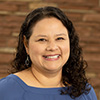
Karla Saavedra Rodriguez, Ph.D.
I have been with the Department of Microbiology, Immunology, and Pathology since 2007. During my research appointments in the Department, I’ve found teaching and mentoring fascinating. I’ve taught dozens of undergraduates, graduates, and post-docs to conduct bioassays, molecular biology techniques and analysis. I enjoy empowering students with laboratory and analytical tools that will be useful in their professional or academic careers. The course's purpose is to introduce students to the cell and molecular biology required to understand the current and fascinating research in infectious diseases. The purpose is to offer students with a thorough appreciation of themes in molecular biology that will help them advance in their chosen career fields of basic research, science communication, biotechnology, or medicine.
- Ph.D., Universidad Autonoma de Nuevo Leon, Mexico, 2008
- M.Sc., Universidad Autonoma de Nuevo Leon, Mexico, 2004
- B.A., Universidad Autonoma de Nuevo Leon, Mexico, 1998
I am an Assistant Professor located at Colorado State University's Center for Vector-Borne Infectious Diseases on the Foothills campus. My laboratory investigates the biology of mosquitoes that transmit arboviral diseases to humans. I am particularly interested in the molecular mechanisms of insecticide resistance, as well as their evolution, and interactions with biological features that affect virus replication and transmission. To understand the molecular pathways in resistant mosquitos, I use toxicology, genetics, genomics, transcriptomics, and metabolomics. My purpose is to give information and tools that will help to improve global mosquito control tactics and prevent disease transmission.
Mosquito biology, toxicology of insecticides, genetic, genomics
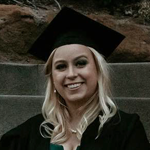
Catherine B.
"I was attracted to the wide range of backgrounds of the faculty and the flexible online model. During the program, I was exposed to many fields and occupations that led me to opportunities I didn’t even know existed. I apply things I learned every day in my job when I set up laboratories and train scientists in diagnosing pathogens in patients. The quality of education is beyond what I expected. Professors were extremely supportive and dedicated to student success."

"The biggest draw to CSU Online was the elite professors. They are actively engaged in research and doing the science you read about in textbooks. Many of the techniques I learned in the program are a vital part of my everyday work as a research associate. I would absolutely recommend this program. The education I received is unparalleled."
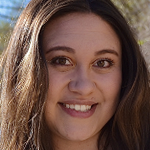
"When I saw I could complete a Masters in Microbiology in a year, there wasn't much debate. The program was highly recommended for its amazing classes, supportive professors, and professional development. I developed passions I had no idea I had and explored other aspects of myself, professionally and personally. I currently work as a Study Pathology Technician at Labcorp aiding in the preclinical stages of drug development for the health of animals and people. I learned about drug development in the program through classes and pathology through guest speakers, leading me to my decision to apply to a pathology related job. This program changed my professional and personal growth in ways I never imagined. The world of microbiology is vast and versatile, explore it, advocate for it, and contribute to it!"
Application Deadlines
Start your application online and upload materials directly into the online system. You can save your progress and return any time.
1 Review Admission Requirements
- Bachelor of Science in microbiology, biology, or a related field from a regionally accredited institution
- Cumulative GPA of 3.0 on all undergraduate coursework
- GRE not required
Note : Meeting the minimum department standards does not ensure admission to the program.
2 Prepare Application Materials
Prepare the materials below and upload when you apply online:
Three letters of recommendation (required): Recommenders should accurately speak to your abilities and potential for graduate study. You will provide information about your recommenders in the online application. CSU will contact them with instructions and a link to a secure form they will submit on your behalf.
3 Complete Online Application
Complete the online graduate application and pay the nonrefundable application processing fee (payable online). As soon as you have completed the required information, please submit your application. Your application will not be reviewed until it is complete and all required materials have been received.
- Select "Microbiology (M.S.) - Distance" when choosing major
Online applications must be submitted before 5 p.m. (Mountain Time) on the deadline date.
4 Request Transcripts
Request one official transcript of all collegiate work completed from all institutions attended. Transcripts from Colorado State University are not required. Transcripts must be received directly from the originating institution to be considered official.
Electronic (preferred): Digital Transcripts must be submitted by the originating institution using a secure service such as parchment, eScrip-Safe, the National Student Clearinghouse, or e-Quals. Transcripts received via emails are considered unofficial. Use institution code 4075 for Colorado State University or [email protected] if the secure service requires an email address.
Mail (if necessary) Graduate Admissions Colorado State University – Office of Admissions 1062 Campus Delivery Fort Collins, CO 80523-1062
5 Check Your Application Status
View your application status at any time to ensure your application checklist is complete or to check on updates.
Once your complete application, including supporting materials, is received, the department admission committee will review your application and notify you of their decision.
For International Applicants
Proof of English language proficiency is required for applicants from countries or United States territories where there are official languages other than (or in addition to) English. This includes the U.S. territories of American Samoa, Guam, the Northern Mariana Islands, and Puerto Rico.
Learn more about English language proficiency requirements .
We love learning about your goals and answering any questions you have.

Program Details
- 3.0 GPA on all undergraduate coursework
- Math Entrance Exam scores recommended for applicants who have not taken the required prerequisites within the past 10 years
Application Dates
Request information.
By providing your information, you consent to receive calls, emails, and/or text messages from CSU Online. Consent not required to purchase goods or services. For more info, call 1-970-491-5288 . We respect your privacy . This site is protected by reCAPTCHA and the Google Privacy Policy and Terms of Service apply.
- Accreditation
- Dates & Deadlines
- Faculty & Staff Resources
- Classroom Locations
- p (970) 491-5288
- e 2545 Research Blvd. Fort Collins, CO 80526
- Privacy Information
- State Authorization Disclaimer
- Equal Opportunity
M.Eng. in Bioengineering Online Program
Start Your Application Process
Not Ready to Apply? Connect with Us and Find Our More
Complete a professional, non-thesis master’s degree program at your own pace through the world-renowned University of Illinois Urbana-Champaign
In addition to an on-campus program, the Master of Engineering (M.Eng.) in Bioengineering degree program is also offered through a fully online platform, with the two transcriptable concentrations to choose from: bioinstrumentation and general bioengineering . It is designed for those who are looking for a “stepping stone” to technical and managerial careers in the healthcare industry. In addition, the flexibility of an online platform is an excellent option for students who want to pursue an advanced graduate degree while working.
The online M.Eng. in Bioengineering program is the exact same degree awarded to students who complete the on-campus program. Through the online program, students will augment the depth of their technical background, while also developing fundamental skills in business, preparing students to take on first level supervisory roles in the healthcare industry.
The online degree can be completed in as little as 5 semesters, depending on how many classes are taken per semester, but students have up to five years to complete it. All online students receive access to recorded lectures and follow the class syllabus, including assignments, exams and projects. The instructors will be available for virtual office hours and to answer questions.
Degree overview
- Total credit hours: 32
- Bioinstrumentation
- General bioengineering
- BIOE 575 Capstone Project - Online
Admission requirements
- Bachelor’s degree in engineering, science or related discipline
- Minimum GPA 3.0 out of 4.0 for the last two years of undergraduate study – on their personal essay, students are encouraged to provide an explanation if GPA is lower than minimum
- GRE optional
- For applicants whose degree is not from an institution where English is the official language, TOEFL or IELTS test results are required. Minimum scores of 103 for TOEFL and 7.5 for IELTS are required for full admission.
Applications are reviewed in a holistic manner, so personal essays and letters of recommendation are weighed just as heavily as quantitative scores and grades.
Application deadlines
- Application deadline for Fall semester admission: July 31
- Application deadline for Spring semester admission: Nov. 30
View the application requirements checklist .
Fees and tuition
- The online tuition is assessed by the College of Engineering. View the Engineering Online Student Tuition .
- The online M.Eng. in Bioengineering program is self-supporting and not able to provide any financial assistance.
For questions about our online program, contact us at [email protected] .
Begin your application
BIOE M.Eng. Contacts
LIEZL BOWMAN Assistant Director 1240E Everitt Laboratory, M/C-278 1406 W. Green St. Urbana, IL 61801 Email: [email protected] Phone: (217) 333-8163
PROF. JENNIFER AMOS Faculty Program Director 3242 Everitt Laboratory, M/C-278 1406 W. Green St. Urbana, IL 61801 Email: [email protected] Phone: (217) 333-4212
Interested in our M.Eng. Programs? Connect with us to find out more.
Email: [email protected] Phone: (217) 300-8066 1102 Everitt Laboratory, M/C 278 1406 W. Green St. Urbana, IL 61801
Connect With Us Apply Now
- What majors and programs are available at WKU?
- How do I apply for financial aid and scholarships?
- Where can I register for a campus tour?
- What housing options are available?
- How can I contact an academic advisor?

Additional Information
- Orientation for Online Learners
- Student Resource Portal
- (270) 745-5173 or toll free at 888-4WKUWEB
- [email protected]
South Campus Academic Wing C170 2355 Nashville Rd. Bowling Green, KY 42101-1084
Master of Science in Biology
The 100% online, non-thesis, Master of Science in Biology provides advanced training in Biology, while expanding opportunities in teaching, research and public service. This program allows freedom of choice in the classes you take to complete your degree and encourages courses built around areas most relevant to your career goals and interests. You may focus on ecology, evolution or cellular/molecular biology, or take a variety of courses. Courses are available online year-around, allowing you to take courses during windows that work best for you!
Learn more about our thesis-based Master of Science in Biology and our 100% online graduate certificate in biology .
Program Information
Program Coordinator: Dr. Jarrett Johnson
Email: [email protected]
Phone: ( 270) 745-3696
The Graduate School
Email: [email protected]
Phone: (270) 745-2446
Website: wku.edu/graduate
To learn more about WKU Graduate School and the Master of Science in Biology , view the Graduate Catalog . To take the next step on your climb to the top, apply today !
For more information about the program, fill out the form below.
Data source: Economic Modeling, LLC (Emsi) / www.economicmodeling.com
The information provided through this website are based in part on U.S. Bureau of Labor Statistics data that is licensed by Western Kentucky University from Emsi. While Western Kentucky University believes this data to be reliable as a whole, some of the data is based on estimates made by Emsi, when actual data is not available.
Western Kentucky University does not guarantee a job to graduates upon completion of any program.
Information about accreditation can be found through the Office of the Provost .
Some of the links on this page may require additional software to view.
Search form
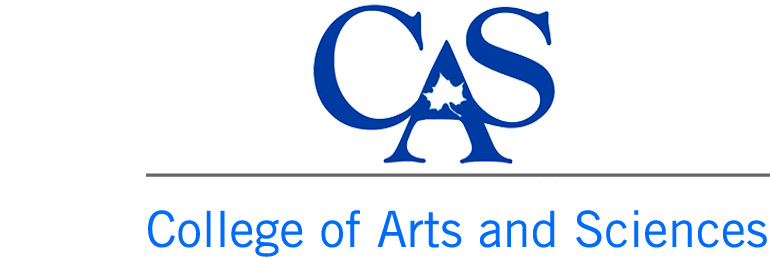
Department of Biology
Administration, faculty & staff resources.

Undergraduate
Costs & aid.

Sycamore Express
Prepping your future.

Keep inTouch
Supportstate.

Faculty and Staff
You are here
Online biology (m.s.) - non-thesis.
See "Programs" for application checklist
The University offers an online master of science (M.S.) in biology that provides students with advanced knowledge of biology needed for careers in industry and federal and state government agencies. In addition, the program is excellent preparation for professional schools.
- The master of science (M.S.) in biology includes 32 credits. This non-thesis program is a valuable option that enables pre-professional students to develop courses of study tailored to meet their individual needs and interests.
- Coursework includes a required research course plus coursework and seminars selected from areas such as biology, ecology, and organismal biology, and life sciences. In addition, all students complete a culminating experience related to research with a faculty member. Areas of research expertise of the department include behavior, physiology, microbiology, bioinformatics, cell and molecular biology, ecology, evolution, genomics, and conservation. This program does not include a thesis.
- The department is home to the Center for Bat Research, Outreach, and Conservation, which conducts scientific research and community outreach on the biology of bats. The department also houses the core facility of The Center for Genomic Advocacy, a multidisciplinary University center. The core facility is equipped with a next-generation sequencer and other key equipment for genomic research. The department also houses a research museum and maintains a field station. The University owns three natural areas that support field research.
- This master’s program can be completed entirely online in three to five years of part-time study. The University allows students to take up to seven years to earn the degree. Students who have the flexibility to blend on-campus and online coursework can complete the program in two years of full-time study.
- This online program is open to eligible students in the U.S. (including the District of Columbia and all U.S. territories). The program also is open to students in Canada (all provinces). The program is closed to students residing in countries other than the U.S. and Canada except for U.S. military and State Department personnel and their family members with APO/FPO addresses.
Note: The University also offers an on-campus master of science in biology with thesis as well as an on-campus Ph.D. in biology . These program are offered on the Indiana State University campus, located in Terre Haute, Indiana.
Required Courses
The online master of science in biology provides a strong background needed to pursue a career in biology in industry and federal and state government agencies as well as preparing students for professional schools.
Accreditation
The University is accredited by the Higher Learning Commission .
Financial Aid & Assistance
Graduate students may be eligible for federal student loans if they are admitted into graduate degrees (or first-time teacher certification programs) and meet other eligibility requirements. Certificate programs are not eligible for financial aid. Private alternative loans can help students pay college expenses that may not be covered by federal loan programs or other financial aid. For more information, visit financial aid .
In addition, students may be eligible for payment plans and veterans benefits .
Further Information
For further information and assistance, contact:
College of Graduate and Professional Studies Indiana State University (812) 237-3619 [email protected]
The Graduate Catalog and Undergraduate Catalog of Indiana State University are the documents of authority for all students. The requirements given in the catalogs supersede information issued by any academic department, program, college, or school. The University reserves the right to change the requirements at any time.
Quick advising questions? E-mail us at [email protected] and we can help! Need additional assistance? Click here to schedule an appointment with an advisor.
Learn how to schedule an appointment with the OAA by clicking HERE
You may also call 713-348-4060 or email [email protected] for help scheduling an appointment.

Specialized Advising
Non-Thesis Master's Programs at Rice
Programs on this page primarily provide advanced coursework and a professional component and lead to master's degrees in certain specified disciplines, without a thesis. This page is meant to be a helpful guide to current Rice undergraduates thinking about graduate programs.
Master of Architecture (MArch)
Thesis-based, professional degree program leading to various stages of professional accreditation.
Master of Arts in Teaching (MAT)
The MAT is a non-thesis degree program for students who want to qualify for secondary school teaching following a bachelor's degree. This program offers 3 tracks: (1) a 5 year MAT for Rice undergraduates offered as a 4+1 format, (2) an MAT for new teachers that includes state of Texas teacher certification (full time program), and (3) an MAT for experienced teachers that can be completed with or without principal certification (part time program).
Master of Business Administration (MBA)
Offered by the Jones Graduate School of Business, the MBA degree can be obtained via the Full-Time MBA Program, the MBA for Professionals Program, or the MBA for Executives Program.
MBA/Master of Engineering
This program is offered by the JGSB and the George R. Brown School of Engineering, in any of the departments of engineering. This program prepares students to become managers in organizations requiring a high level of technical expertise and management skills.
MBA/Master of Science
This program is offered by the JGSB and the Weiss School of Natural Sciences Professional Science Master’s (PSM) Program. This program prepares students to become managers in organizations requiring specialized technical knowledge and general management skills.
Master of Bioengineering (MBE)
A non-thesis degree that provides students with greater depth in their bioengineering training to advance their career objective..
Master of Chemical Engineering (MChE)
The MChE program offers a non-thesis professional degree intended to better prepare students for a career in the field of chemical engineering. The curriculum is designed for recent graduates with a bachelor’s degree in chemical engineering to complete in two semesters (fall and spring).
Master of Civil and Environmental Engineering (MCEE)
The MCEE is a professional non-thesis degree with sub-tracks in Civil Engineering or Sustainable Environmental Engineering and Design. Degree requires 30 semester hours of approved course work including a final project of 2 semester hours.
Master of Computational and Applied Mathematics (MCAM)
The Professional Masters of Computational and Applied Mathematics (MCAM) is a non-thesis master’s program designed for students interested in a technical career path in industry or business. The MCAM program provides students with a fundamental understanding of computational and applied mathematics tools that are essential to tackle complex problems in science, engineering and business. With proper planning and coordination of undergraduate major(s) and senior year courses, Rice undergraduates have the option to complete the MCAM degree with just a 5th year of study.
Master in Computational Science and Engineering (MCSE)
The Master in Computational Science and Engineering (MCSE) is a non-thesis degree program offered jointly by the Department of Computational and Applied Mathematics and Statistics in the School of Engineering. The program is designed to provide training and expertise in modern computational techniques that will find application in a wide range of industries, and technical and managerial functions within them.
Master of Computer Science (MCS)
The professional MCS degree is a terminal degree for students intending to pursue a technical career in the computer industry. Areas of concentration for the MCS include algorithms and complexity, artificial intelligence, robotics, compiler construction, distributed and parallel computing, graphics and geometric modeling, operating systems, and programming languages. The professional program normally requires three semesters of study.
Master of Data Science (MDS)
Rice's Master of Data Science (MDS) is a professional non-thesis degree designed to support the needs of interdisciplinary professionals intending to pursue a technical career in data science. The On-Campus MDS is a full-time program at the Rice University campus in Houston, Texas. The program hosts a lively and invigorating community of scholars in the Department of Computer Science, the largest academic department at Rice. The program offers students online or on-campus options with a curriculum that delivers the skills needed to collect, evaluate, interpret and communicate data. Students must apply to either the online or on-campus program and will be explicitly admitted to one program or the other.
Master of Electrical and Computing Engineering (MECE)
The master of electrical engineering (MECE) degree is a course-based program designed to increase a student’s mastery of advanced subjects; no thesis is required. The MECE prepares a student to succeed and advance rapidly in today’s competitive technical marketplace.
Master of Energy Economics (MEECON)
The Master of Energy Economics (MEECON) develops and educates future leaders and strategic thinkers in the energy sector.
Master of Engineering Management & Leadership (MEML)
The Master of Engineering Management & Leadership (MEML) at Rice University will provide you with the skills and knowledge to succeed in the new and emerging technology era known as Industry 4.0. The Master of Engineering Management & Leadership program at Rice University is a professional, non-thesis master’s degree meant for technical professionals with engineering or related technical backgrounds; recent college graduates from engineering and the computational science fields should also apply.
Master of Global Affairs (MGA)
The Master of Global Affairs (MGA) allows students to benefit from the academic and research strengths of Rice and ingress the field of international policy to thrive as leaders in the next century.
Master of Human-Computer Interaction and Human Factors (MHCIHF)
The Master of Human-Computer Interaction and Human Factors is a full-time 2-year professional master’s program that will expand students’ knowledge of critical concepts and methods in psychology and how to apply those concepts to real-world problems.
Master of Industrial Engineering (MIE)
Industrial engineering improves the efficiency and safety of various systems in manufacturing, services, health care, energy, and logistics. It uses mathematical and physical models to make data-driven decisions needed in every major economic sector. The Professional Master's Program in Industrial Engineering at Rice University is for students seeking a deeper understanding of how sophisticated decision models can optimize complex systems in any industry as well as the nonprofit sector.
Master of Liberal Studies (MLS)
The part-time Master of Liberal Studies (MLS) program is designed for those who love to learn new ideas and discuss them with others. The MLS program allows students to explore timeless and timely human questions within the humanities, social sciences and sciences.
Master of Material Science and NanoEngineering (MMSNE)
The professional Master of Material Science and NanoEngineering (MMSNE) is open to students who have shown academic excellence in their undergraduate studies. This non-thesis degree option, combining engineering coursework with professional development and communications, is designed for engineers who have attained a bachelor's degree and are looking to further their careers in industry.
Master of Mechanical Engineering (MME)
The professional master’s degree in Mechanical Engineering (MME) is a non-thesis degree program intended for students who have completed a 4-year bachelor’s program in engineering and wish to enter industry as practicing professionals, rather than pursuing a research oriented or academic career.
Master of Social Policy Evaluation (MSPE)
The professional master's degree in Social Policy Evaluation (MSPE) provides the quantitative skills and hands-on application for real-world policy evaluations conducted at the Texas Policy Lab and other research centers at Rice.
Master of Statistics (MStat)
The professional Master of Statistics (MStat) Program includes a solid foundation in statistical computing, statistical modeling, experimental design, and mathematical statistics, plus electives in statistical methods and/or theory. It is a bridge to industry, designed to provide advanced learning and training in the applied aspects of statistics theory, methodology and techniques beyond the typical undergraduate program.
Office of Academic Advising
Monday - Friday
8:30 am - 12:00 pm
1:00 pm - 5:00 pm
Phone | 713.348.4060
Email | [email protected]
Office of Academic Advising MS-529
Rice University, Ley Student Center, Suite 132
6100 Main Street
Houston, TX 77005
SOCIAL MEDIA
Click here to schedule an appointment with an OAA advisor.

Interdisciplinary Studies (MA) – Non-Thesis
Program at a glance.
- In State Tuition
- Out of State Tuition
Learn more about the cost to attend UCF.

The Nonthesis Track in the Master of Arts in Interdisciplinary Studies program allows students the flexibility to develop an individually tailored plan of study using courses traditionally associated with a Master of Arts (Humanities, Social Sciences, Communication, etc.) This track can combine a variety of concentrations and culminates in a capstone experience. The precision program is designed to help students prepare for applied, non-research oriented careers.
This is an excellent program for a number of endeavors appropriate for the twenty-first century. By combining the knowledge from two disciplines, supported by cross-disciplinary electives, students precisely define their own area of expertise. This unique option is ideal for students who have varied interests that can be connected by a common theme or goal.
Application Deadlines
- International
Ready to get started?
University of central florida colleges.

Request Information
Enter your information below to receive more information about the Interdisciplinary Studies (MA) – Non-Thesis program offered at UCF.
Degree Requirements
Required courses.
- IDS6308 - Ways of Knowing (3)
- Earn at least 3 credits from the following types of courses: A critical thinking and writing course in one of the chosen concentrations or in an area that supports the plan of study.
- Earn at least 3 credits from the following types of courses: A research methods course in one of the chosen concentrations or in an area that supports the plan of study
Elective Courses
- Students take a minimum of 24 credit hours of electives, including two concentrations of 9 credit hours each of restricted electives and 6 credit hours of unrestricted electives. The unrestricted electives can be from either concentration or additional areas that support the capstone project or intended use of the degree. Students who choose one of the pre-approved concentrations such as Diversity and Inclusion or Project Management can choose courses from those course listings on our website. Those students do not need to list 2 concentrations. Course and concentration selections are done in consultation with and with approval from the program director or academic coordinator. Coursework must be selected so that at least 50 percent of credit hours in the program is taken at the 6000 level. Students must earn course grades of "B" or higher to gain credit toward their master's degree.
- Earn at least 9 credits from the following types of courses: Three courses in the first concentration.
- Earn at least 9 credits from the following types of courses: Three courses in the second concentration.
- Earn at least 6 credits from the following types of courses: Two additional elective courses.
- Students choose to complete a project, an internship, or a written comprehensive examination as their capstone experience. The capstone project should reflect a combination of the two concentrations in the degree by finding an applied policy area, special topic, or issue that crosses both areas. Some examples of project types include: writing a grant proposal for an agency, program evaluation and recommendations, or a "best practices" literature review in a particular area. Students must choose three advisers for the project, one from each concentration area and one from any supporting discipline. The project will be evaluated on a pass/fail basis. Students who feel an internship will best support their plan of study and professional goals will enroll in IDS 5949 Co-op Interdisciplinary Study (0 credits) and IDS 6949 Co-op Interdisciplinary Study (3 credits) after locating an acceptable internship host site, with the approval of the program coordinator. The written examination will entail the selection of an exam committee of three faculty who will formulate questions to address both concentration areas. The student will have 48 hours to choose 2 of the 3 questions and complete the take-home exam. The exam should be completed in the student’s final semester of enrollment. The exam will be graded on a pass/fail basis. If the student does not pass both questions with a 70% or higher, the student will have two additional chances to retake the exam with new questions. The exam can be taken only once per semester. If the student must retake the exam, the student must enroll in IDS 6999 Graduation Requirement to remain active in the program.
Independent Learning
- The program is designed to provide numerous independent learning opportunities. The required methods course will introduce students to research methodology that they will apply to independent research/capstone work. IDS 6308 acquaints students with interdisciplinarity through the use of student-driven analyses, discussions, and presentations. The required critical thinking and writing course involves students in verbal and written discussions, analyses, and critiques of work they create and from the published literature. Additionally, the completion of the capstone experience will require independent learning that will be evaluated by faculty in the specified disciplines.
Grand Total Credits: 33
Application requirements, financial information.
Graduate students may receive financial assistance through fellowships, assistantships, tuition support, or loans. For more information, see the College of Graduate Studies Funding website, which describes the types of financial assistance available at UCF and provides general guidance in planning your graduate finances. The Financial Information section of the Graduate Catalog is another key resource.
Fellowship Information
Fellowships are awarded based on academic merit to highly qualified students. They are paid to students through the Office of Student Financial Assistance, based on instructions provided by the College of Graduate Studies. Fellowships are given to support a student's graduate study and do not have a work obligation. For more information, see UCF Graduate Fellowships, which includes descriptions of university fellowships and what you should do to be considered for a fellowship.

Department of Chemistry
Search form.
- Affiliated Faculty
- Administrators & Staff
- Research Faculty & Staff
- Research Associates
- Graduate Students
- Update/Submit Alumni Information
- Emeritus and Retired Faculty
- In Memoriam
- Research Facilities
- Centers & Programs
- Astrochemistry
- Bioanalytical
- Biophysical Chemistry
- Catalysis and Energy
- Chemical Biology
- Chemical Education Reserach
- Imaging and Sensing
- Inorganic and Organometallic Chemistry
- Nanosciences and Materials
- Organic Chemistry and Synthesis
- Surface Chemistry and Spectroscopy
- Theory and Computation
- Non-Thesis Master's Program (1 Year)
- PhD Program
- Applying to the PhD Program
- Information about Charlottesville
- Chemistry and Multidisciplinary Courses
- Graduate Handbook
- Professional and Career Development Opportunities
- Graduate Chemistry Program Clubs & Organizations
- Fellowships and Awards
- Graduate Program Calendar
- Graduate Student Forms
- 2023-24 Bi-weekly Payroll Calendar
- Diversity, Equity, and Inclusion Initiatives
- Disability Accommodation Information
- Prospective and Transfer Students
- General Chemistry Options
- Undergraduate Advisors
- Process for declaring a major, minor, DMP, or ACS Certification
- B.A. in Chemistry
- B.S. Chemistry
- B.S. Specialization in Biochemistry
- B.S.Specialization in Chemical Education
- B.S. Specialization in Chemical Physics
- B.S. Specialization in Environmental Chemistry
- B.S. Specialization in Materials Science
- B.A./M.S. or B.S./M.S. in Chemistry ("3+1" Degree Option)
- American Chemical Society Poster Session
- Undergraduate Publications
- Undergraduate Research in a pandemic
- How to Prepare and Present a Scientific Poster
- How to Prepare and Present a Scientific Talk
- Guidelines for Final Report
- Distinguished Majors
- Study Abroad
- First and Second Years
- Third and Fourth Years
- Graduation Information
- Undergraduate Resources
- Upcoming Seminars
- Seminar Archive
- Request Seminar Date
- Named Lectures
- Spring 2023 Newsletter
Non-Thesis Master's Degree Program (1 YEAR)
The non-thesis Master’s (M.S.) degree program is designed for students who want an advanced degree but are not necessarily ready for or interested in the Ph.D. program. The M.S. degree provides a path to industrial jobs, professional schools, teaching careers, Ph.D. programs, and can be used as part of a multidisciplinary career portfolio. Noting that chemists often work astride multiple disciplines in their research and careers, our students may take relevant graduate coursework across the Schools of Arts & Sciences, Engineering & Applied Sciences, Education, and the Basic Science Departments of Medicine. This flexibility allows for efficient optimization of learning tailored to the student’s chosen research, career path, and goals. Students in the M.S. program are responsible for paying their own tuition, fees, and health insurance premiums (for more information, see the Tuition and Fees section below).
The information contained on this website is for informational purposes only. The Undergraduate Record and Graduate Record represent the official repository for academic program requirements. These publications may be found at www.virginia.edu/registrar/catalog/grad.html .
Graduation Requirements
Students pursuing the M.S. degree must complete a total of 30 credits. Six of these credits must be research (three credits per semester are permitted). Thus, while a thesis is not required for the M.S. degree, the program offers the opportunity for substantial research experience. The remaining 24 credits are comprised of graduate courses, with opportunities to take graduate-level professional development courses. Successful completion of the M.S. degree requires a B cumulative average (3.0 GPA), and the minimum passing grade in any graduate course is B - (B minus). Specific coursework selection varies with student interest and goals.
Graduate courses outside of Chemistry can be taken with approval from the Director of Graduate Studies. Depending on career interests, students may be allowed to substitute one or two graduate courses per semester from disciplines other than Chemistry (e.g., Biology, Pharmacology, Physics, Materials Science Engineering, Education, Computer Science, etc.).
Students wishing to use their M.S. degree as a stepping-stone to a Ph.D. degree may want to transfer their M.S. degree course credits to a Ph.D. program. This can certainly be done in its entirety after successful admission to the UVA Ph.D. program, but it is important to emphasize that sometimes only limited graduate coursework can be transferred between different universities.
Additional English Language and Culture Curriculum for International Students
International M.S. degree students whose first language is not English will take an intensive 6-week summer English for Academic Purposes ( EAP program ), provided by UVA's Center for American English Language and Culture ( CAELC ) , to expand their academic English reading, writing, and speaking skills. . The Chemistry Department covers EAP tuition and fees, but students are responsible for their own living expenses and having their own health insurance plan at the time of arrival.
International M.S. students can also participate in free English language and culture courses, also provided by CAELC, during the fall and spring semesters at no additional cost. This instruction is designed to help smooth the student’s entry into American life and to rapidly build their academic English speaking and writing skills to help optimize their graduate experience.
Tuition and Fees
Students in Chemistry’s MS program are self-funded and responsible for paying their own living expenses, tuition, fees, and health insurance plan (by purchasing a UVA student health plan or demonstrating that they have another plan with the same standard of coverage). The tuition and fees include access to university facilities, such as fitness centers, and sporting events. Click on the following link to find the current cost of tuition, fees, and health insurance for in-state and out-of-state master’s level students: the Graduate School of Arts & Sciences Tuition and Health Premiums .
Applicants who are U.S. citizens may complete the FAFSA (Free Application for Federal Student Aid) to determine whether they are eligible for federal aid in the form of work-study and loans. For more information, please visit the UVA’s Financial Aid Basics: Graduate Students .
Qualifications for Admission
Applications for admission to the UVA Chemistry M.S. program are reviewed by the Department Graduate Admissions Committee, which is composed of department faculty. Admission decisions are based on the review of the applicant’s undergraduate transcript, personal statement describing experiences and interests, letters of recommendation, and in some instances, TOEFL scores.
Given the integrated CAELC services available, the Chemistry M.S. degree program can consider international applicants with outstanding scientific and educational credentials but with TOEFL scores below the Graduate School's minimum score provided that the applicant is committed to working with CAELC to improve their English proficiency.
In addition to students who have completed a bachelor’s degree in chemistry or biochemistry, the Chemistry Department also accepts students with training in biology, chemical engineering, physics, and other disciplines, who may not have completed study in all of these core areas, but who have completed a rigorous program in an allied discipline and have sufficiently strong training in chemistry.
How to Apply
Students are admitted to the MS program for the fall term of each year. Applications are accepted between October 1 to December 15. Prospective applicants interested in applying after December 15 should first email the Department ( [email protected] ) to see if positions are available before applying.
Applications and all supporting documents must be submitted through the Graduate School of Arts & Sciences' (GSAS) online application portal . Technical questions related to the application system should be addressed to the Graduate Admissions Office, by email ( [email protected] ) or phone (434-243-0209).The deadline for MS applications is December 15 .
The following materials must accompany the application in order for it to be considered complete.
- Statement of purpose
- Transcripts (unofficial transcripts may be submitted for the application; students who accept an offer of admission must then have official transcripts sent directly from their previous university directly to the Graduate Admissions Office)
- 2 confidential letters of recommendation (for current UVA undergraduates, at least one letter should be written by a faculty member in the UVA Chemistry Department); letter writers will upload their letters directly to the admissions portal.
- An application fee of $85 (the fee is automatically waived for current UVA undergraduates; external applicants who believe they qualify for a fee waiver should review the our fee waiver policy below)
Additional Materials for International Applicants
- Unless they have completed a 4-year undergraduate degree in the U.S. or at an international program whose instruction is entirely in English, international students whose first language is not English must submit self-reported TOEFL/IELTS scores (if they accept an offer of admission, students must have the testing agency send official scores directly to the Graduate Office of Admissions).
- International students are strongly encouraged to submit GRE Chemistry (or a related subject) test scores.
Click here for the ONLINE APPLICATION .
Application Fee Waivers
If you are a us citizen or permanent resident seeking an application fee waiver, you should first submit a fee waiver application to uva’s office of graduate and postdoctoral affairs - diversity programs . applicants may qualify based on a variety of criteria:.
- participation in specified organizations and training programs
- graduation from a Minority Serving Institution (MSI)
- current or former membership in the United States Armed Forces
- financial hardship
Click here for detailed information on eligibility requirements and directions for submitting fee waiver applications.
If your application is denied, you may email the decision to the Chemistry’s Department's Graduate Coordinator ( [email protected] ) and ask for further consideration.
Pursuing a non-thesis master’s degree: Is it worth it?
When navigating the world of master’s programs, the plethora of choices can be bewildering. For instance, prospective candidates often grapple with questions regarding the nature and value of non-thesis master’s degrees. To demystify these programs and provide clarity, delve into this guide to gain insights into commonly asked questions about non-thesis master’s degrees and equip yourself with the knowledge needed to determine whether such a program aligns with your academic and career goals.
What is a non-thesis master’s degree?
The difference between non-thesis and thesis master’s degrees, how common are non-thesis master’s degree, the length of a thesis vs. non-thesis master’s degree, reasons to pursue a non-thesis master’s degree, how to decide whether a non-thesis master’s degree is right for you.
A non-thesis master’s degree, also known as a coursework-based master’s degree, is a graduate program where students typically do not need to complete a research-based thesis as a requirement for graduation.
These programs are often more focused on coursework, examinations, projects, or practical experience.
Instead of conducting original research and writing a thesis, students in non-thesis master’s programs primarily take courses and complete a set number of credits or specific coursework.
Non-thesis master’s programs are common in various fields, especially in disciplines where practical skills and knowledge are more important than conducting independent research. For example, non-thesis master’s programs are often found in business administration (MBA), education (M.Ed.), public administration, healthcare administration, and some engineering and technology-related fields.
A non-thesis master’s degree can be definitely worth it is you are aware of the differences and decide that this option best fits to your ambitions, learning style and future career prospects.
A non-thesis master’s degree can undoubtedly be worth it, provided that you are well-informed about the distinctions between program types and have carefully concluded that this option aligns with your aspirations, preferred learning approach, and the potential pathways it offers for your future career.
In contrast to a non-thesis master’s degree, thesis-based master’s programs require students to conduct original research, write a thesis based on their research findings, and defend their thesis in front of a committee of faculty members. The choice between a thesis and a non-thesis master’s program often depends on the goals and career aspirations of the student and the requirements of the specific program or institution.
It’s crucial to understand that a thesis-based master’s degree isn’t exclusively tailored for those aspiring to enter academia or pursue a Ph.D. In fact, a significant majority of individuals pursuing a master’s program that includes a thesis ultimately find their paths in various professional fields.
Engaging in a thesis offers a unique opportunity to delve deeply into a specific subject, foster independence in research, and gain invaluable experience in project management. It involves conceiving an idea, structuring a project, and executing it, reflecting a multifaceted skill set.
A thesis-based master’s degree serves as a testament to one’s complex analytical thinking, as well as their unwavering determination.
However, it’s important to note that this does not imply that non-thesis master’s degrees are inherently inferior or misguided choices. The decision to pursue a non-thesis program should be a well-considered one, grounded in a thorough assessment of your personal motivations and objectives.
Non-thesis master’s degrees vary in prevalence across different regions. In many European contexts, for instance, most master’s programs tend to culminate with a more extensive project that necessitates original research. However, internships and practical projects also hold a stronger presence in many programs.
Furthermore, the prevalence of non-thesis master’s degrees is significantly influenced by the academic discipline in question. For instance, these degrees are more commonly found in fields like business and education as compared to social sciences or humanities.
Non-thesis master’s programs are designed to equip students with practical skills and knowledge that can be immediately applied in a professional context, as opposed to focusing on original research. In several European countries, these programs may be referred to as “professional” or “applied” master’s degrees, emphasizing practical training and real-world experience.
Additionally, in some contexts non-thesis master’s programs might maintain a research-oriented element, where students are expected to complete a final project or a capstone experience that could involve some original research or data analysis, albeit usually less extensive than a traditional thesis.
In general, non-thesis master’s degrees are relatively less prevalent, and their particular structure and prerequisites exhibit variations not only between countries but also among different universities.
Consequently, conducting comprehensive research to comprehend the specific program requirements and expectations is of paramount importance prior to applying.
It is erroneous to assume that a non-thesis master’s degree requires less time to complete than a master’s program with a thesis component.
It’s essential not to conflate thesis and non-thesis master’s degrees with one-year or two-year master’s programs . In fact, many one-year programs do incorporate a thesis component.
Thus, if your primary goal is expediency and obtaining a degree within a shorter timeframe, the question of whether to pursue a non-thesis master’s degree may not be the most relevant one to consider.
Pursuing a non-thesis master’s degree can offer unique advantages for individuals with diverse career goals and learning preferences:
- Interest in practical and applied knowledge: Non-thesis programs often emphasize practical, hands-on knowledge that can be immediately applied in real-world scenarios.
- Leadership development: Many non-thesis degree programs place a stronger focus on leadership skills, preparing students for roles where practical skills are essential in leading projects or teams.
- Broadening career opportunities: Some fields, like business and education, highly value practical skills and knowledge, and a non-thesis master’s can open doors to a wider range of career opportunities.
- Balancing work and study: For individuals who are working professionals or have other commitments, non-thesis programs can be more accommodating in terms of managing work-study balance.
- Lack of interest in research or academic writing: Some students may simply prefer coursework over extensive research and thesis writing, finding non-thesis programs a better fit for their academic and career goals.
Choosing the ideal master’s degree program is a significant decision, and it’s essential to align your academic journey with your aspirations. Pursuing a non-thesis master’s degree presents distinctive benefits that cater to a wide range of career objectives and learning styles. To make an informed choice, ponder the following questions:
- What are your career goals and aspirations? Think about the specific roles or industries you want to work in after completing your master’s degree.
- Do you enjoy research and academic writing? Consider your preferences for in-depth research and thesis writing as some programs require these components.
- Do you value practical, real-world experience? Assess whether you prioritize hands-on learning and the application of knowledge in practical settings.
- What are the specific industry requirements in your field of interest? Research whether non-thesis or thesis-based programs are more aligned with the expectations of your desired industry.
- What is your learning style? Reflect on your preferences for coursework, projects, and presentations versus extensive research and academic writing.
- What type of assessment methods do you find engaging? Determine if you enjoy diverse evaluation methods, such as projects, presentations, and coursework, or if you prefer a single research-based project.
Get new content delivered directly to your inbox!
Subscribe and receive Master Academia's quarterly newsletter.
10 tips for engaging your audience in academic writing
The best online courses for phd researchers in 2024, related articles.
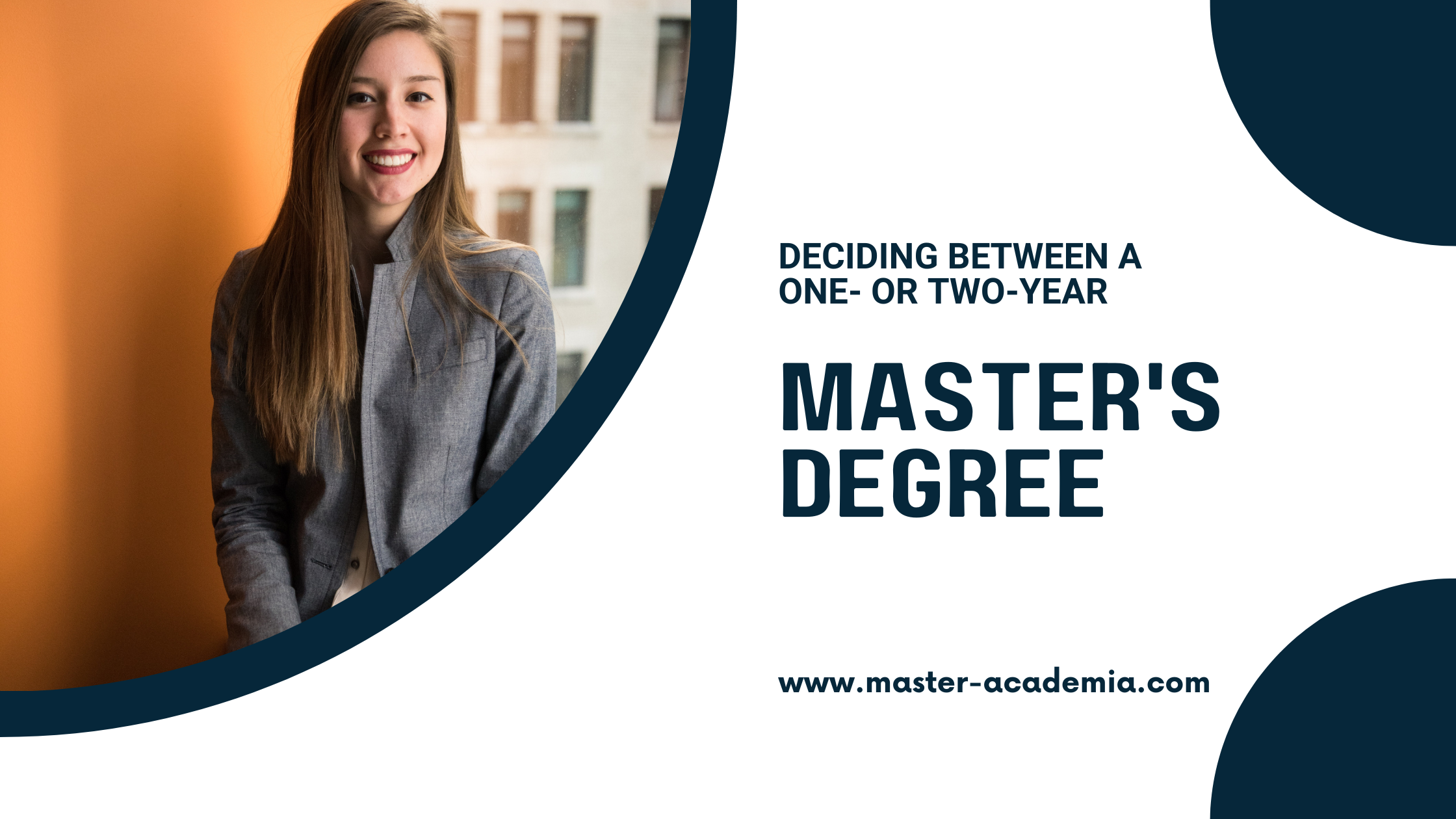
Deciding between a one- or a two-year master’s degree
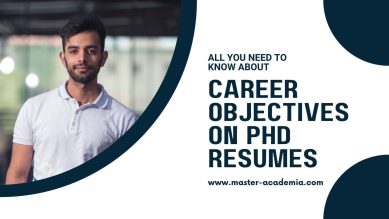
All you need to know about career objectives on PhD resumes

The best answers to “What are your plans after graduation?”
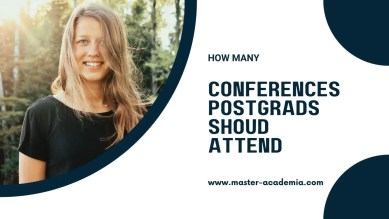
How many conferences postgrads should attend
Jump to main content

Master's of Science -- non-thesis
- College of Natural and Health Sciences
- Graduate Programs
Program description
This program offers a flexible path to the MS degree over three or more semesters. Online and in-person courses are offered in biomedical, cell/molecular, ecology/evolution, and pedagogy. Details can be found below or in the university catalog: http://unco.smartcatalogiq.com/ .
Learn about the cost of attendance
Who to contact
Biology Graduate Admissions Manager Dr. Lauryn Benedict [email protected] 970-351-3364
Master's Non-Thesis Academic Advisor Dr. Gregory DeKrey [email protected] 970-351-2493
General degree information
Degree program options.
- On-campus: This option is offered at the Greeley, Colorado, main UNC campus.
- Online: This option is offered through UNC Extended Studies .
How does this degree program work?
This M.S., non-thesis, degree program is designed to provide post-baccalaureate training in any area of biology, primarily through the completion of traditional lecture and laboratory courses. This degree program can be completed in as little as one calendar year, but typically is pursued over two or more academic years. Formulation of a plan of study is accomplished with the guidance of a faculty advisor who will help you to tailor a program of study to match your educational needs.
Who is this degree program for?
This degree is appropriate for talented students who already possess an undergraduate degree in the sciences and who want to strengthen or broaden their biology knowledge. Moreover, it can be used as a path to career advancement or as a stepping stone on the way to other graduate or professional programs.
Degree requirements
This degree requires completion of 30 credits of study. The UNC catalogs contain the official descriptions and requirements of all programs at the university.
Applying to the program
Deadlines, program requirements, and application instructions
In addition to information about yourself and your academic history, applicants are asked to provide letters of recommendation, a curriculum vitae (CV) or resume, and a letter of intent. The following sections offer advice on how to maximize the impact of those documents.
Letters of recommendation for your application
Letters of recommendation (also called letters of reference) are extremely important to your application. Choose the people that you ask to write these letters thoughtfully. Letter writers should be able to comment on your potential for successful graduate work from a position of experience. Typically, they will be academic faculty or work supervisors that have knowledge of your academic or scholarly performance and other attributes relevant to success in graduate school.
- A statement of how the person knows you and for how long
- An indication of the person's professional expertise
- Comments on your intellectual strengths, motivation, creativity, time-management skills, work ethic, collegiality, and ability to handle stress and work independently
- Comments on your writing and verbal communication skills
- An assessment of your potential and abilities relative to others at your level of education and experience
- Ask each potential recommender if they are willing to act as a professional reference on your behalf. If they decline your request, move on.
- Be sure to let each potential recommender know the deadline for submission of the recommendation, and allow sufficient lead time for them to write and submit a strong letter.
- Provide your recommender the list of expectations (above) for what should be included in the letter.
- Supply a copy of your curriculum vitae or resume to each recommender to refresh their memory about your past education and achievements. This is particularly important if you haven't been in touch with them for a while.
- Supply a copy of your letter of intent to each recommender. This will help them to understand why you are applying to graduate school and what you want to do with your advanced education.
Your curriculum vitae (CV) or resume
You may choose to provide either a curriculum vitae or a resume. This document should summarize your preparation and experience relevant to graduate study in biological sciences. A curriculum vitae is most appropriate for applicants with career goals in academia, while a resume might be more appropriate for currently working professionals. CVs and resumes will be reviewed equivalently and with reference to the career goals that you outline in your letter of intent. Find specific advice about what to include on a CV or resume here .
Your letter of intent
At a minimum, your letter of intent should include the following:
- Your academic experience, interests and preparation
- Background qualifications for the program
- Your career goals and how this degree will help you to achieve those goals
In addition to the required components of the letter of intent (listed above), you may choose to add more information that you believe is important for the Graduate Committee who evaluates applications to consider in reviewing your application. For example, some applicants may feel it is useful to explain anomalies in their transcript that co-occurred with significant life events.
In addition to communicating your goals and qualifications, your letter of intent also serves as an example of your communication skills. Prepare your letter carefully, editing it for logical flow, grammar and spelling, and succinct prose.

Contact UNC
Social media.
- UNC Overview
- Awards & Accolades
- Organizational Chart
- Strategic Plan
- Accreditation
- Student Consumer Information
- Sustainability
- Prehealth advising
- Forms and Instructions
- Research seminars
Page Last Updated: Today | Contact for this Page: Nathan Tran
Privacy Policy | Affirmative Action/Equal Employment Opportunity/Title IX Policy & Coordinator
- Skip to Content
- Catalog Home
- Institution Home
Academic Catalog 2024-2025
- Graduate Information /
- College of Arts & Sciences /
- Psychology and Communication /
Master of Science in Psychology Non-Thesis (MS)
All application materials for the Master of Science in Psychology are due by the date prescribed by the Office of Graduate Studies and Research to be considered for admission. Students apply to begin the graduate program in the Fall.
The following are the admissions criteria for the MS in the Psychology Program:
- Submit an application for graduate studies by the Fall due date provided by the Graduate School. Deadlines may be found at: http://www.tamiu.edu/gradschool/
- Pay the application fee.
- Submit an official transcript from the last institution attended and an official transcript from the institution where the highest degree was earned. In some cases it may be the same institution.
- Submit two letters of recommendation from academic or professional sources to the Graduate School.
- Include a statement of purpose with a minimum of 300 words describing your academic and career goals and objectives.
- Include a sample of your academic writing skills (it may be an undergraduate research paper, a book chapter, or a journal article).
Major Curriculum - Psychology
9 SCH of electives may be selected from any 5000-level graduate courses, including those from other departments in the university, with the approval of the Graduate Advisor.
- Twitter Icon
- Facebook Icon
- YouTube Icon
- Instagram Icon
Print Options
Print this page.
The PDF will include all information unique to this page.

COMMENTS
The online master's program in computer science offered by Purdue University offer students both thesis and non-thesis options. Online Master of Science in Computer Engineering North Carolina State University at Raleigh. North Carolina State University at Raleigh is a public university located in Raleigh, North Carolina. It is ranked as #95 ...
Credit Requirements for a Non-Thesis Master's Degree. Have at least 30 total graduate credit hours, which must include: 9 credit hours of additional graduate-level coursework. An overall GPA of 3.0 is required for completion of the master's degree program. Plan of Study Requirements for Non-Thesis Master's Degree.
Conclusion. Choosing between a thesis and a non-thesis Master's program ultimately depends on your career goals, research interests, and personal preferences. Thesis programs provide a robust foundation for research-oriented careers and advanced studies, while non-thesis programs offer practical skills tailored for immediate industry integration.
The off-campus master's degree program was created in 1973, and hundreds of students have obtained their degrees through the program. The online delivery system, initiated in 2010, maintains the high-quality, non-thesis M.S. program for which the University of Illinois is known. The online M.S. food science program offers one to three courses ...
Online Masters Non-Thesis Program The University of Florida Agricultural and Biological Engineering Online Non-Thesis Graduate Program seeks to break digital barriers in an effort to connect everyone with the opportunity to join the Gator Nation, regardless of their location. Through our fully online program, students will advance their ...
Choosing Between a Thesis or Non-thesis Master's Degree. As of 2015, approximately 25.4 million Americans held advanced degrees, with more citizens joining these ranks each year.As studies continue to show the career advancement and salary benefits of completing a master's degree, more and more students elect to pursue advanced educations.
The online non-thesis Master of Science in Aeronautics and Astronautics from Purdue University offers working engineers flexibility to pursue professional growth on their own time through courses taught by world-renowned professors who are experts in their fields. ... offering the MSAA non-thesis program entirely online since 2006 through ...
Earn your master's degree in microbiology online. Designed to be completed in as little as one year, this fully online, non-thesis master's degree program will strengthen your understanding of theoretical and applied aspects of microbiology, immunology, molecular biology and virology, preparing you to pursue career opportunities in a variety of industries.
Complete a professional, non-thesis master's degree program at your own pace through the world-renowned University of Illinois Urbana-Champaign In addition to an on-campus program, the Master of Engineering (M.Eng.) in Bioengineering degree program is also offered through a fully online platform, with the two transcriptable concentrations to ...
The 100% online, non-thesis, Master of Science in Biology provides advanced training in Biology, while expanding opportunities in teaching, research and public service. This program allows freedom of choice in the classes you take to complete your degree and encourages courses built around areas most relevant to your career goals and interests.
Required Core Courses (9 credit hours) EVR 6930 - Special Topics in Environmental Sciences; GEO 6936 - Graduate Seminar; GEO 6118 - Research Design; Other Required Courses (21 credit hours):The non-thesis track entails a total of 30 sh (including the courses in the Environmental Science core), of which 15 must be at the 6000-level and may include up to 3 sh of internship.
The master of science (M.S.) in biology includes 32 credits. This non-thesis program is a valuable option that enables pre-professional students to develop courses of study tailored to meet their individual needs and interests. Coursework includes a required research course plus coursework and seminars selected from areas such as biology ...
Notably, the school uses the iLearn platform to teach simplified, non-thesis online master's degree programs. Marist College also provides a wealth of easily accessible online academic resources available 24/7. These include the Academic Learning Center, Library, Advising and Academic Services, Writing Center, and Student-Athlete Support ...
The professional program normally requires three semesters of study. Master of Data Science (MDS) Rice's Master of Data Science (MDS) is a professional non-thesis degree designed to support the needs of interdisciplinary professionals intending to pursue a technical career in data science. The On-Campus MDS is a full-time program at the Rice ...
The Department of Biological Sciences is pleased to offer an online, non-thesis Master of Biological Sciences for science educators interested in biological sciences. Our students include teachers at all levels, as well as scientists from museums, field stations and research laboratories. This program is fully in a distance-learning format and ...
Out of State. $369.65 per credit hour. Learn more about the cost to attend UCF. The Nonthesis Track in the Master of Arts in Interdisciplinary Studies program allows students the flexibility to develop an individually tailored plan of study using courses traditionally associated with a Master of Arts (Humanities, Social Sciences, Communication ...
The Master of Wildlife and Fisheries Resources degree (non-thesis) is a flexible option that allows you to customize your education and complete coursework at your convenience. Our online program is asynchronous - which means you can access classes 24/7 and work at times that are optimal for you. And, if you take at least 2 courses each ...
The Department of Biological Sciences offers an online, non-thesis M.S. in biological sciences for teachers and science educators interested in biological sciences. Students include teachers at all levels, as well as scientists from museums, field stations and research laboratories. This program is fully in a distance-learning format and ...
The non-thesis Master's (M.S.) degree program is designed for students who want an advanced degree but are not necessarily ready for or interested in the Ph.D. program. The M.S. degree provides a path to industrial jobs, professional schools, teaching careers, Ph.D. programs, and can be used as part of a multidisciplinary career portfolio. ...
A non-thesis master's degree can be definitely worth it is you are aware of the differences and decide that this option best fits to your ambitions, learning style and future career prospects. A non-thesis master's degree can undoubtedly be worth it, provided that you are well-informed about the distinctions between program types and have ...
General degree information Degree program options. On-campus: This option is offered at the Greeley, Colorado, main UNC campus. Online: This option is offered through UNC Extended Studies. How does this degree program work? This M.S., non-thesis, degree program is designed to provide post-baccalaureate training in any area of biology, primarily through the completion of traditional lecture and ...
100% Online Program (Non Thesis) Completed in 1 year! This is a practical program well-suited to full-time professionals who coach or administrators focusing on a career in Athletic Administration. Students will receive professional development in Marketing, Finance, Governance, Sports Law and Professional Portfolio development.
Course Requirements. For the non‐thesis Master's degree option, students must complete 30 graduate level credit hours. EEL 6065, EEL 6910, EEL 6933, and EEL 6940 cannot be used to fulfill any credit requirements for the Master's degree. At least 21 hours of ECE coursework must be taken. This course requirement can only be fulfilled by ...
Master of Arts in History & Political Thought, Political Science Concentration Thesis (MA) Master of Arts in Sociology (MA) Master of Arts in Sociology Non- Thesis (MA) Master of Public Administration (MPA) Master of Science in Criminal Justice (MS) Master of Science in Criminal Justice Non- Thesis (MS) Doctor of Philosophy in Criminal Justice ...